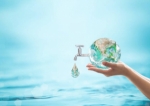Access to clean water is a fundamental human right. However, millions of people around the world still lack access to safe drinking water. The importance of clean water cannot be overstated, as it is essential for human health and well-being.
Clean water is crucial for the prevention of waterborne diseases such as cholera, typhoid fever, and dysentery. These diseases can lead to severe illness and even death, particularly in vulnerable populations such as children and the elderly. Access to clean water can also reduce the burden on healthcare systems and help alleviate poverty by enabling individuals to work and attend school without falling ill.
In addition to its importance for human health, clean water is also essential for the environment. Polluted water can harm aquatic life and ecosystems, leading to a loss of biodiversity and the degradation of natural resources. Therefore, ensuring access to clean water is not only a matter of human rights but also a crucial step towards sustainable development.
Health Benefits of Clean Water Prevention of Diseases
Clean water is essential for maintaining good health. It helps to prevent waterborne diseases such as cholera, typhoid, and dysentery which are caused by harmful bacteria and viruses. These diseases can cause serious illness and even death, especially in children and people with weakened immune systems. By providing access to clean water, the risk of these diseases can be significantly reduced.
Promotion of Hygiene
Access to clean water also promotes good hygiene practices. Clean water is essential for washing hands, bathing, and cleaning clothes and utensils. It helps to prevent the spread of diseases such as diarrhea, which is a major cause of death in children under the age of five.
In addition to preventing diseases and promoting hygiene, clean water also has other health benefits. It helps to improve digestion, regulate body temperature, and maintain healthy skin and hair. Therefore, access to clean water is not only essential for preventing illness but also for maintaining overall health and well-being.
Overall, access to clean water is crucial for maintaining good health and preventing the spread of waterborne diseases. By promoting good hygiene practices and providing access to clean water, communities can significantly improve their health and well-being.
Environmental and Economic Impacts Ecosystem Preservation
Clean water is essential for the preservation of ecosystems. Water pollution can have devastating effects on aquatic life, including fish, amphibians, and other species. When pollutants enter waterways, they can harm these species, leading to population declines and even extinctions. Clean water is also important for the health of plant life, which is essential for the survival of many animal species.
Furthermore, clean water is critical for the preservation of wetlands, which are among the most productive ecosystems on the planet. Wetlands help to filter pollutants from water and provide habitat for a wide range of species. They also help to prevent erosion, store carbon, and mitigate the impacts of climate change.
Economic Growth Through Water Management
Clean water is also essential for economic growth. Water is a vital resource for agriculture, industry, and energy production. In areas where water is scarce, the availability of clean water can be a major factor in economic development.
Effective water management can also help to mitigate the impacts of natural disasters such as floods and droughts. By investing in infrastructure such as dams, levees, and irrigation systems, communities can better manage their water resources and reduce the risk of damage from extreme weather events.
Investing in clean water infrastructure can also create jobs and stimulate economic growth. According to estimates, every $1 billion invested in water infrastructure can create up to 26,000 jobs. This not only benefits local communities but also helps to strengthen the overall economy.






